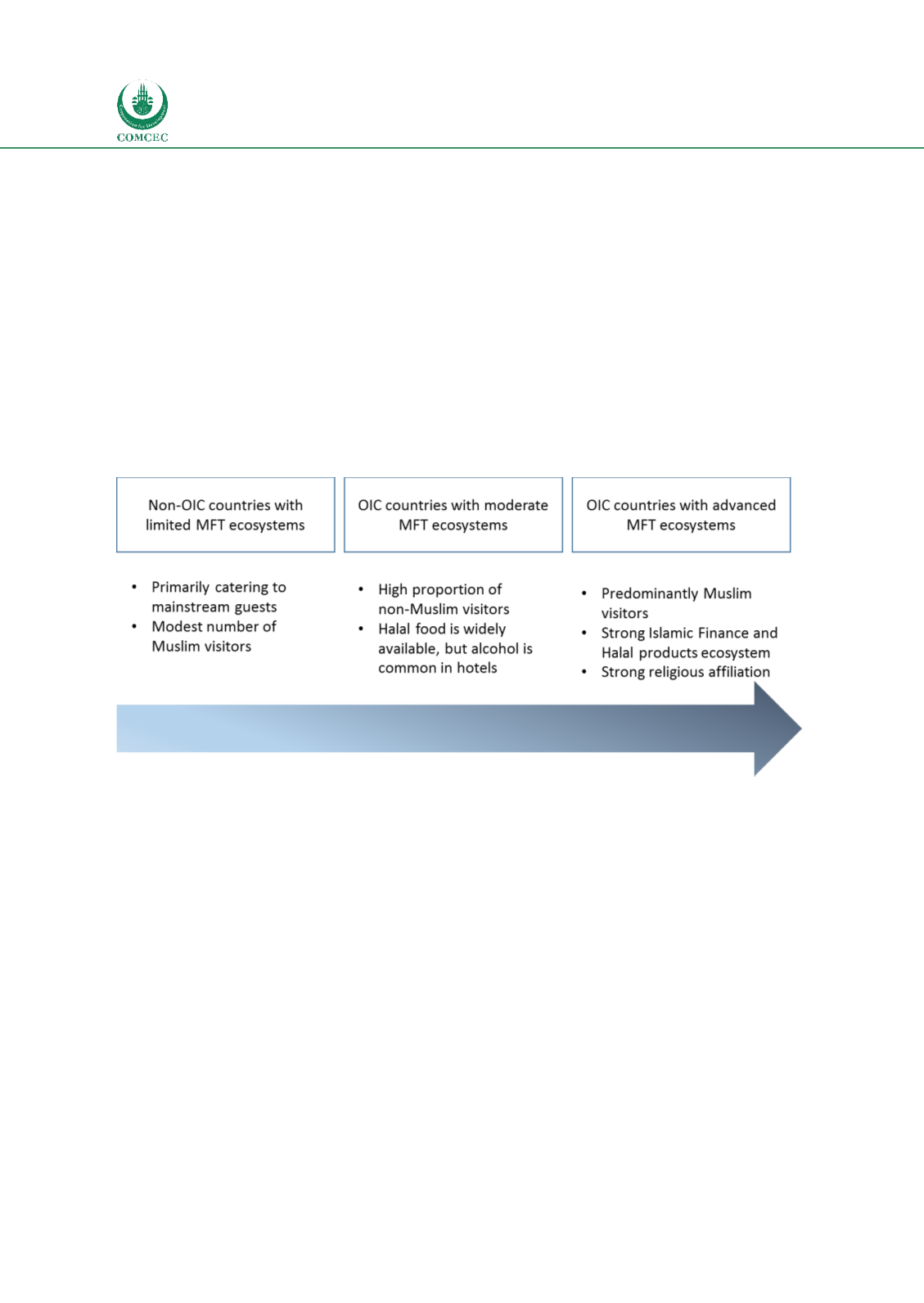

Muslim Friendly Tourism:
Regulating Accommodation Establishments
In the OIC Member Countries
68
5.
Basic Principles for MFT Accommodation Services and Standards
5.1.
MFT Services and Facilities
This section outlines a key list of MFT services and facilities that the OIC countries should
seek to cover in an MFT hospitality standard. Given that flexibility is key, recommendations
have been tailored based on how robust MFT ecosystems are.
In identifying this list, input from case studies, surveys, interviews, existing standards,
previous MFT reports as well as DinarStandard’s frameworks and analysis of the MFT sector
have been incorporated. The following figure shows the segmentation that is used for
recommendations for the OIC countries with varying levels of MFT ecosystem development.
Figure 15: the OIC Countries Segmentation - MFT Ecosystem
Source: DinarStandard
In the next sections, services and facilities for the OIC countries with modest MFT ecosystems
will be discussed first, followed by MFT services for the OIC countries with advanced MFT
ecosystems. Lastly, the non-OIC countries, which understandably have limited MFT
ecosystems, will be addressed.
5.1.1 MFT Services and Facilities for OIC Countries with Modest MFT Ecosystem
There are three practical MFT services that are important to Muslim guests, are easy to
implement and have low impact on mainstream guests, which accommodation facilities in the
OIC countries with modest MFT ecosystems should incorporate. These three services, as
illustrated in the following chart, include offering exclusively Halal certified food (with a
consideration to have the hotel kitchens Halal certified), providing prayer mats in rooms, and
accommodating for Ramadan meal timings and menu items. All of these services were rated
in the survey as important, are easy to implement and have limited impact on mainstream
















